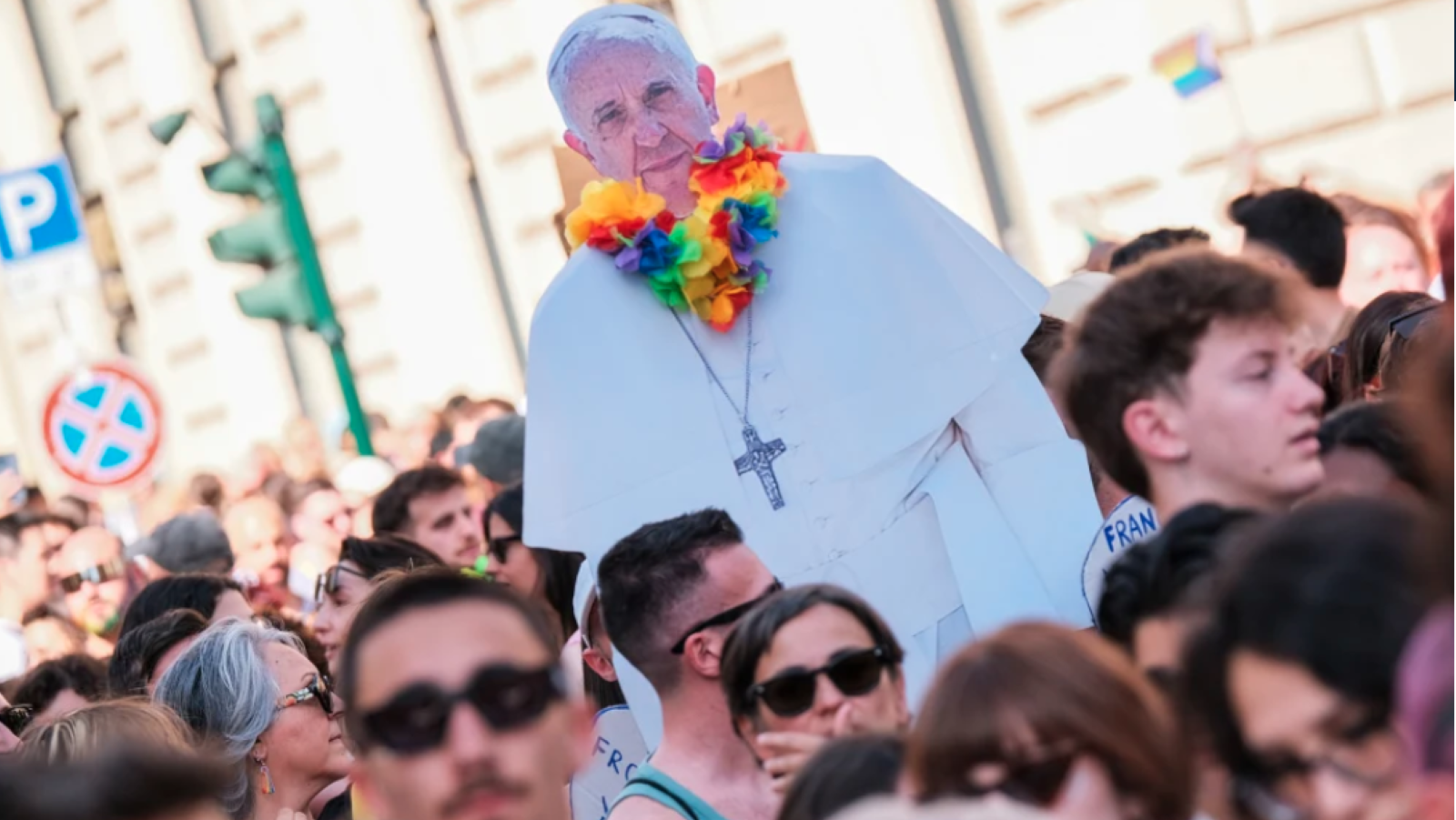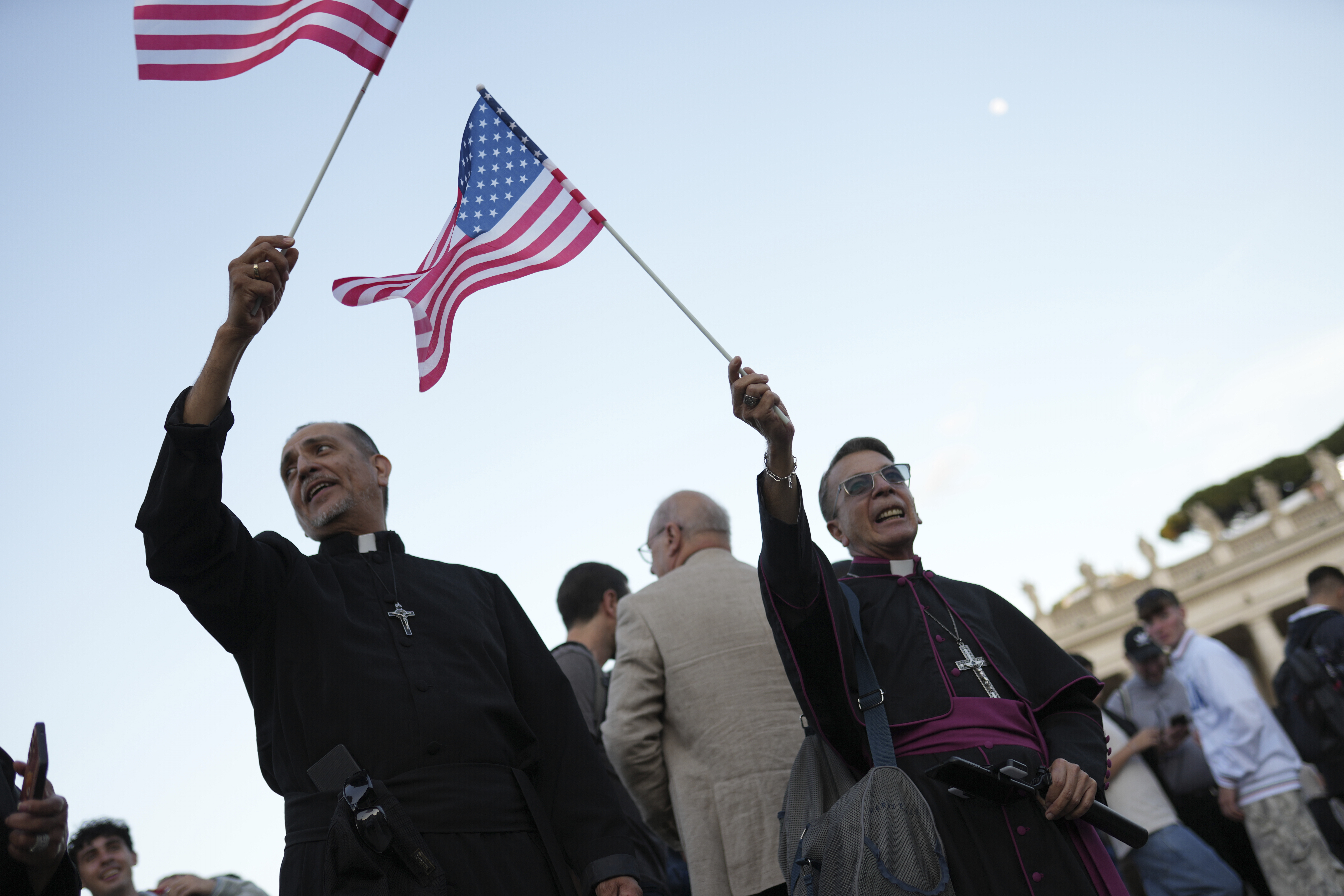Pope Francis' Seismic Shift: LGBTQ Catholics Respond
Pope Francis's 'Seismic Shift': Hope and Complexities for LGBTQ Catholics
Introduction: A Different Kind of Shepherd?
The passing of Pope Francis, announced early Monday, just after Easter, has sparked reflections across the globe. Among those reflecting deeply are LGBTQ Catholics, a community often marginalized and ostracized by religious institutions. But why is Pope Francis's legacy so particularly meaningful to them? It all boils down to a shift, a “seismic shift” as many describe it, in the tone and approach of the Catholic Church towards LGBTQ individuals. But was it truly a revolution, or just a crack in a centuries-old wall? Let's delve into the nuances of his papacy and its impact on this often-overlooked segment of the Catholic community.
The "Who Am I to Judge?" Moment: A Turning Point
In July 2013, during a now-famous in-flight press conference, Pope Francis uttered a phrase that resonated around the world: "If a person is gay and seeks God and has goodwill, who am I to judge him? Who am I to judge?" This wasn't just a casual remark; it was a departure from the often harsh and condemnatory language previously used by the Church. It was a moment of potential, a seed of hope planted in fertile ground.
Beyond the Soundbite: Context and Nuance
While the phrase was revolutionary, it's important to remember the context. Francis wasn't rewriting doctrine overnight. He was speaking about individuals who were actively seeking God and living a life of goodwill. This wasn't a blanket endorsement of same-sex marriage or a complete overturning of Church teachings. But it was a start, a softening of the tone, a recognition of the humanity of LGBTQ individuals.
A Departure from the Past: Shifting Sands in the Vatican
The significance of Francis’s words becomes even clearer when contrasted with the pronouncements of his predecessors. Where past leaders often described homosexuality as an “intrinsic moral evil” and an “objective disorder,” Francis offered a more compassionate, albeit still nuanced, perspective. This change in tone alone represented a monumental shift in the lived experience of many LGBTQ Catholics.
Doctrine vs. Pastoral Care: A Delicate Balance
The Catholic Church often distinguishes between its unchangeable doctrines and its approach to pastoral care. Francis seemed to emphasize the latter, focusing on how the Church could better minister to and care for its LGBTQ members, even if the underlying doctrines remained the same. This created a tension, a push and pull between tradition and progress.
Francis's Actions: More Than Just Words?
Beyond his words, Francis took concrete actions that further signaled a change in the Church’s approach. He urged parents not to condemn their gay children, emphasizing the importance of love and acceptance. He even approved priests' blessing same-sex unions, a move that sparked both celebration and controversy within the Church.
Blessings vs. Marriage: Understanding the Difference
It’s crucial to understand that these blessings are distinct from sacramental marriage. The Church still maintains that marriage is between one man and one woman. However, these blessings were seen as a way to offer support and recognition to same-sex couples, acknowledging the love and commitment they share.
The Limits of Progress: "He Wasn't Perfect"
Despite these positive steps, many LGBTQ Catholics acknowledge that Francis's papacy wasn't a perfect solution. He faced resistance from conservative elements within the Church, and his actions often fell short of fully embracing LGBTQ equality. For many, it felt like progress was incremental and hesitant.
Navigating Internal Resistance: A Complex Task
Leading the Catholic Church is like steering a massive ship. It takes time and effort to change course, especially when faced with internal resistance. Francis had to navigate complex theological and political landscapes, balancing the desires of LGBTQ Catholics with the deeply held beliefs of more conservative members of the Church.
A Complex Legacy: Contradictions and Hope
Francis leaves behind a complex legacy. He was a figure of both progress and tradition, of acceptance and continued adherence to established doctrine. He opened doors for dialogue and inclusion, but he didn't tear down the walls entirely. His legacy is one of hope tempered by realism, a recognition that the journey towards full LGBTQ equality within the Catholic Church is far from over.
The Ongoing Debate: Where Does the Church Go From Here?
With Francis's passing, the debate about the Church's stance on LGBTQ issues is likely to intensify. Will the next Pope continue his work of fostering acceptance and understanding? Or will the Church revert to a more conservative approach? The future remains uncertain, but Francis's "seismic shift" has undoubtedly changed the landscape forever.
The Impact on LGBTQ Catholic Communities: A Sense of Belonging?
Regardless of the future, Francis's papacy had a profound impact on LGBTQ Catholic communities. For many, his words and actions offered a sense of belonging, a feeling that they were seen and acknowledged by the Church. This, in itself, was a significant step forward.
Finding Community and Support: Online and Beyond
Online communities like New Ways Ministry and DignityUSA have long provided support and advocacy for LGBTQ Catholics. Francis's papacy may have emboldened these groups, giving them a stronger voice and a greater sense of hope for the future. These communities offer a safe space for LGBTQ Catholics to explore their faith and connect with others who share their experiences.
Looking Ahead: The Future of LGBTQ Catholics in the Church
What does the future hold for LGBTQ Catholics? Will the Church continue on the path towards greater acceptance and inclusion? Only time will tell. But one thing is certain: Francis's legacy has opened the door for a more open and honest conversation about faith, sexuality, and identity within the Catholic Church.
The Role of Dialogue: Fostering Understanding and Empathy
Dialogue is key to fostering understanding and empathy. By engaging in open and respectful conversations, LGBTQ Catholics and other members of the Church can learn from each other and work towards a more inclusive and welcoming community. It's about finding common ground and recognizing the shared humanity that binds us together.
The Challenge of Reconciliation: Bridging the Divide
Reconciling faith and sexuality remains a challenge for many LGBTQ Catholics. How can they reconcile their love for the Church with its often-unwelcoming stance on same-sex relationships? It's a question that requires deep reflection, prayer, and community support. It requires not just tolerance, but acceptance.
Finding a Place Within: Embracing Both Faith and Identity
Ultimately, finding a place within the Church as an LGBTQ Catholic is about embracing both faith and identity. It's about finding a way to live authentically and with integrity, while remaining connected to the traditions and values that are important to them. It's a journey of self-discovery and spiritual growth, a path that is both challenging and rewarding.
Conclusion: A Shift, Not a Solution
Pope Francis's papacy represented a significant, "seismic shift" in the Catholic Church's approach to LGBTQ individuals. While he didn't fundamentally alter Church doctrine, his words and actions offered a glimmer of hope and a sense of belonging to many. His legacy is complex, marked by both progress and limitations. But his willingness to engage in dialogue and foster acceptance has undoubtedly changed the landscape for LGBTQ Catholics, leaving a foundation upon which future progress can be built. The journey towards full equality within the Church is far from over, but Francis's papacy has undeniably paved the way for a more inclusive and compassionate future. Was it enough? Perhaps not. But it was a start.
Frequently Asked Questions (FAQs)
Here are some frequently asked questions about Pope Francis and his impact on LGBTQ Catholics:
- Did Pope Francis change the Catholic Church's doctrine on homosexuality?
No, Pope Francis did not change the fundamental doctrine of the Catholic Church regarding homosexuality. The Church still maintains that marriage is between one man and one woman. - What was the significance of Pope Francis's "Who am I to judge?" comment?
This comment marked a significant shift in tone, signaling a more compassionate and accepting approach towards LGBTQ individuals who seek God and live a life of goodwill. - Did Pope Francis support same-sex marriage?
No, Pope Francis did not support same-sex marriage. However, he did approve priests blessing same-sex unions, a move that sparked controversy but was seen by many as a step towards greater inclusion. - How did Pope Francis's papacy impact LGBTQ Catholics?
Many LGBTQ Catholics felt more seen and acknowledged by the Church under Pope Francis. His words and actions offered a sense of belonging and hope for a more inclusive future. - What challenges remain for LGBTQ Catholics within the Church?
Despite the progress made under Pope Francis, challenges remain in reconciling faith and sexuality, and in achieving full equality and acceptance within the Catholic Church. The ongoing debate about the Church's stance on LGBTQ issues continues.

